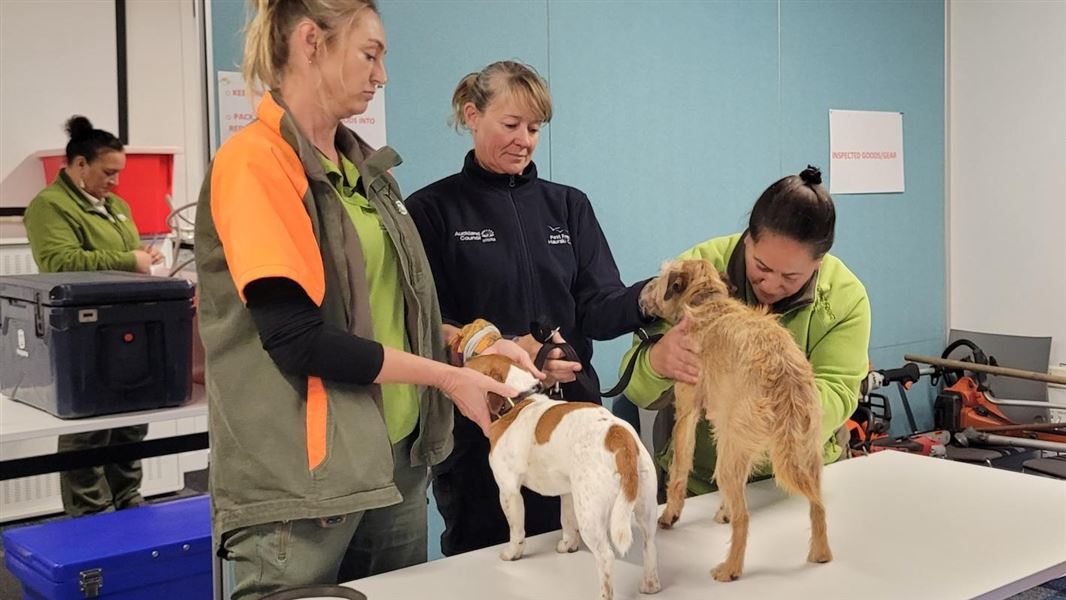Archived content: This media release was accurate on the date of publication.
Date: 26 May 2023
This annual surveillance exercise is part of DOC and Auckland Council’s ongoing monitoring of these precious predator-free islands in the Hauraki Gulf.
Adeline Bosman, DOC ranger and dog handler, says that conservation dogs are trained and certified for a specific target, in this case rodents, as each type of mammalian predator requires a different approach to catch.
“Pru is smelling for rodent odours, including dead or alive animals, and other traces such as faeces, urine and ground scent.”
“When Pru detects her target scent, her behaviour changes noticeably. She initially freezes and looks at me, then becomes very animated.” says Adeline.
“As a handler I have to interpret these signals, so when we’re not in the field we aim to train 5 hours a week to ensure we’re a sharp team.”
Between the two teams of dog and handler, their search will cover the 329 hectares of Rakitū and 50 hectares of Pokohinu/Burgess Island, both of which are open to public access, a potential risk to bring rats or mice ashore. They will also check Motukino/Fanal Island.
The Great Barrier Island/Aotea DOC team visit the Mokohinau Islands every four months and Rakitū every three months. They set out tracking tunnels with freshly inked cards baited with peanut butter to check for pest footprints.
The most recent tracking tunnel blitz on Rakitū and the Mokohinau Islands in March found no trace. The DOC team will set out the Rakitū tunnels again in June, says Operations Manager Kirsty Prior.
“The highly-trained conservation dogs are a vital tool in our kete of monitoring,” says Kirsty. “We don’t expect them to find anything at all – but we can’t be complacent.”
Following a rat eradication in 2018, Rakitū Island was declared predator-free in 2020. Since then, there has been no evidence of any rats on the island.
Pokohinu, the second largest in the Mokohinau group, has been pest free since kiore/Pacific rats were eradicated in 1990. Some islets in the Mokohinau group have never had rats present, and are home to especially vulnerable native species, including the Mokohinau skink, the robust skink, and the Mokohinau stag beetle.
Background information
Conservation Dogs
- There are currently over 120 certified dogs in DOC’s Conservation Dogs Programme, around 80 pest detection dogs and around 45 protected species detection dogs.
- As more parts of New Zealand become predator free by 2050, pest detection dogs will be vital in helping to keep areas predator free through quarantine and surveillance work which can detect pest incursions early.
- It takes around 18 months of daily training to become certified for their target species. Once certified conservation dogs need to train several times a week for the duration of the dog’s working life (around a decade).
Predator-Free islands
- The Mokohinau Islands lie 25 km northwest of Great Barrier Island/Aotea.
- Rakitū Island lies off the northeast coast of Great Barrier Island/Aotea.
Contact
For media enquiries contact:
Email: media@doc.govt.nz
